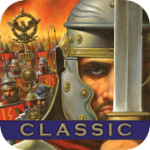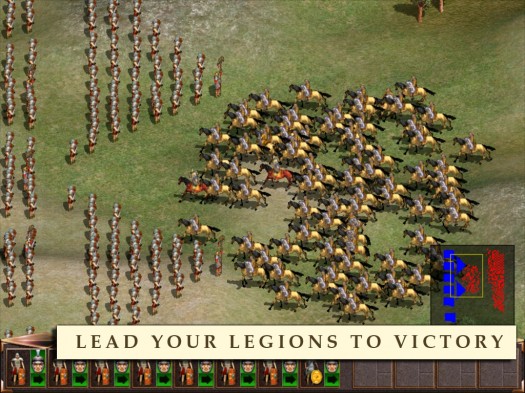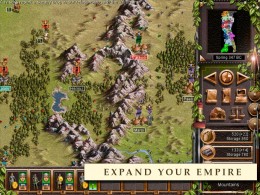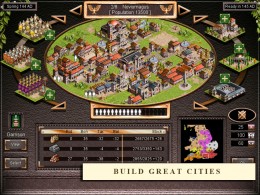 Slitherine Software has built a name for itself on well-researched historical strategy and tactical wargames, and Legion is where it all started, back in 2002. Slitherine’s Legion ($9.99) is a well-executed port of that game, deep and complex, but not taking full advantage of the iOS platform.
Slitherine Software has built a name for itself on well-researched historical strategy and tactical wargames, and Legion is where it all started, back in 2002. Slitherine’s Legion ($9.99) is a well-executed port of that game, deep and complex, but not taking full advantage of the iOS platform.
The look and feel of Legion will be familiar to fans of the Civilization games, including Civilization Revolution ($2.99), though it is much more deeply rooted in its setting, with nearly all of the maps based on historic Roman campaigns, and balance more finely honed in the absence of a research system.
Legion handles resource management, city development and logistics in a manner common to 4x games. There are a few wrinkles that enhance the sense of being a Roman Legate, rather than, say, the ruler of an intergalactic empire. Building construction and unit recruitment are only completed in the spring, for example, and the same “units" of population that work to provide resources are expended to create new military units.
The battles are perhaps the game’s most interesting element, as you select initial placement, formation, and orders, but can only watch the engagement as it plays out. RTS fans will be appalled, but I found this appropriate to the era (formations are important, but mid-battle changes of orders nearly impossible), and makes you think about orders and formations, rather than counting on reflex and fast-scrolling to win the day.
The game’s flaws result from it being a port: the controls are responsive and become comfortable quickly, but still fall into the category of adapting the player to use a finger like a mouse. The main problem is that there are parts of the interface that are easy to miss or misunderstand if you just jump into the game. The tutorial, however, is both brief and sufficient, and a very lightly edited version of the game’s original manual is included.
At first, tooltips were poorly placed, and I found I often had to switch hands to see them, but a new update fixes that. That just leaves my biggest gripe: saves. Slitherine’s Legion only saves via the original save-game and autosave (at the beginning of a new turn). That means that if you have to leave a turn in progress to do something else (such as chasing after your hyperactive toddler) you could lose everything you’ve done in the current season.
One of the advantages of this being a port of a classic game is that there is far more content – more scenarios and ways to play them – than would be invested in an original iOS game. You can play historical campaigns as any of the tribes and nations involved, or swap out for fantasy scenarios in which the Romans invade England starting in Scotland, or Gallic tribes conquer the Italian peninsula (Asterix’s revenge!).
If you’re wondering what Slitherine’s Warhammer 40k game might be like, Battle Academy ($19.99), with its tactical play and 3D graphics, or Slitherine’s own Field of Glory rules for historical tabletop play ($14.99) are probably going to be better reference points. Legion, however, demonstrates that these people can handle strategy on every scale. There has never been a Warhammer videogame that preserved Games Workshop’s tabletop rules: maybe Slitherine will be the one to do it.



